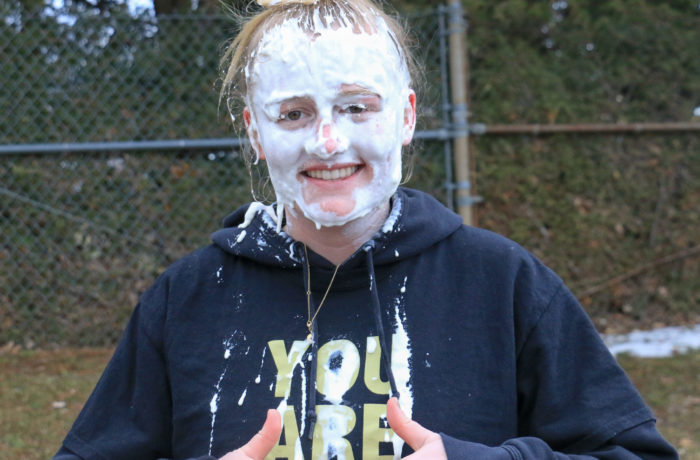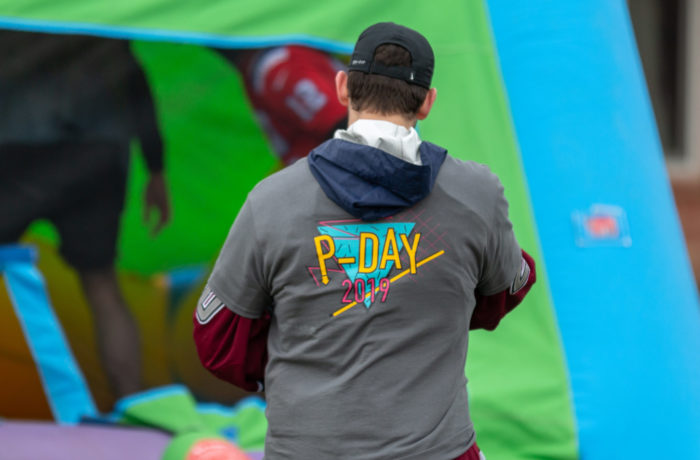By Elizabeth Stapleton
Social Media Editor
The phrase “me too” has taken the world by storm as a path for victims of sexual assault to share their stories. While Hollywood accusations of Harvey Weinstein, Matt Lauer and Woody Allen have unleashed a hidden tsunami of victims, at St. Michael’s College, the movement has also had an impact in unveiling more about the underbelly of sexual harassment and assault in the small community.
The perception of a small, safe community can create a misunderstanding when somebody does experience sexual assault, or is just not having a good experience here overall, said Ryan Stanton, personal counselor at the Bergeron Wellness Center. “It brings confusion and that student is now asking themselves, ‘Well, what’s the matter with me?’ Students are told that it’s supposed to be safe and that you’re supposed to be having this great experience but some students don’t and it can be really hard for those people to accept that.”
As Title IX coordinator at the college, Catherine Welch has met with many students who have experienced sexual assault. “I’m not surprised by the amount of people who experience sexual violence on college campuses but that doesn’t make it any less painful for the people who are going through it” Welch said. A Defender survey from students regarding sexual assault revealed that most students are supportive of the #MeToo movement, but some worry that the movement can be used and manipulated to hurt people.
As a freshman, Rigby Buckner ’18, was dancing at a Halloween party when another student approached and joined her. She saw other students as people she could trust, and initially was having a good time. That false sense of security was then broken when that student took her dancing with him as an invitation to try and stick her hand down his pants. She explained that she had never shared the story before because she thought, “It was a part of college culture and no one would care how it made me feel.”
Such socialized behavior, when unaddressed, can end up crossing more lines down the road.
“The conversation needs to be about what kind of culture we are building on our college campuses,” Welch said.
The #MeToo movement is all about empowering survivors of sexual assault and giving them, “the ability to connect, the ability to say ‘I’m not alone’, and the platform to tell a piece of a story in a way that feels safer than before,” said Stanton “What’s so compelling about the ‘me too’ movement is the ability to be able to hear people’s stories. If you’re listening it really hits you, even as a person who hasn’t had that experience personally.”
Sexual violence is estimated to affect one third of all women worldwide. In a 2017 poll conducted by ABC News and The Washington Post it was found that 54 percent of American women report receiving “unwanted and inappropriate” sexual advances with 95 percent saying that such behavior usually goes unpunished.
“For too long, survivors of sexual assault and harassment have been in the shadows. We have been afraid to speak up, to say ‘me too’ and seek accountability,” said Tarana Burke, the creator and leader behind the #MeToo movement. Stanton says that it’s important for perpetrators to be able to be held accountable and for them to know that they can’t keep doing this.
We as a society often don’t put a heavy emphasis on the fact that there are men that have been sexually abused and forced to repress their feelings and experiences with the fear of being shamed. It’s important for people to know that the #MeToo movement is not just for women, it’s for anyone who’s ever been a victim. Buckner said, “If those men feel encouraged to share their stories, that is just one more way to support the movement.”
Men can be in support of the movement without being someone who was assaulted. Men can support the movement by having self-awareness and the strength to admit to themselves if they’ve ever been apart of the problem. Stanton proposes bystander training for men, or even just talking about it with their friends in order to create a culture that is ‘anti locker room’ talk.
“It’s probably true that most men don’t do the assaulting, but chances are, those guys know somebody who does or has witnessed a scene that they could’ve done something about,” Stanton said.
Buckner suggests that there are plenty of everyday things which men can do to support the movement. “If you are a man and you see another man making a woman uncomfortable, do not hesitate to step in. Maybe round up some buddies, approach the victim, and say “Hey girl! We have been looking for you all night. We are headed out to get some pizza. Want to come?” If the guy tries to follow, she’ll protest, and the guy won’t try to argue with a pack. You don’t even have to involve yourself in the immediate situation, you could get a bouncer or call police.”
She continued to say, “If your friend admits to you that they have been harassed or assaulted, be empathetic. Don’t ask things like what they were wearing, how much they had to drink, if they flirted with the perpetrator, or try to force them to take action. Say something like, ‘I’m so sorry that this happened to you. I am here to support you however you need.’ Your friend will let you know how you can best help.”
“Social change is something that takes a really long time unfortunately” Welch said. “But we need to use our spheres of influence in order to make a difference.”


